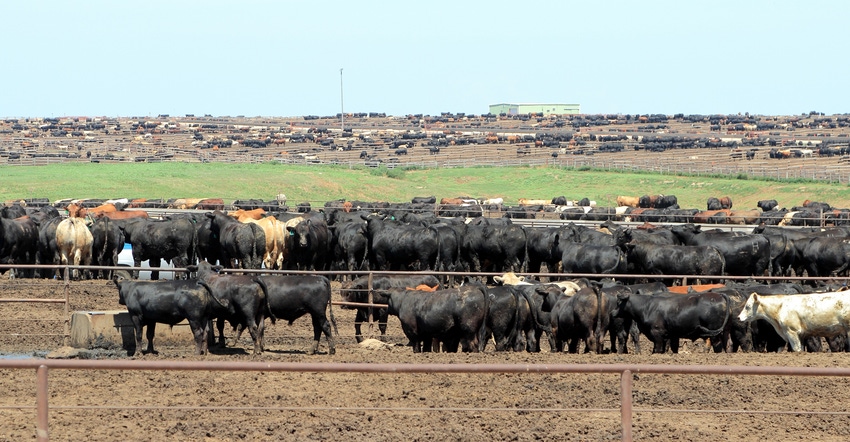June 20, 2022

Kansas Gov. Laura Kelly announced June 17 her administration has made resources available to support cattle feeders in southwestern Kansas whose cattle died over the weekend of June 10-12 due to heat stress. A combination of temperatures spiking in a short amount of time, high humidity, and little to no wind caused cattle losses during the weekend of June 10-12 — a rare event in an area that is usually ideal for cattle feeding.
“I have directed state agencies to do everything in their power to help Kansas cattle feeders who lost cattle due to heat stress,” Kelly said. “From expediting burial permits to reaching out to cattle producers across the state, my administration is working to ease the impact of last weekend’s losses on the Kansas agricultural community.”
“We’re working as quickly as possible to assist facilities in safely disposing of the carcasses, and to respond to the needs of impacted ranchers,” said Janet Stanek, secretary of the Kansas Department of Health and the Environment. “In the last week, our staff has processed burial permits and worked with landfills to ensure that carcasses are disposed of properly.”
Mike Beam, Kansas secretary of agriculture, assured producers that the losses will not create a beef supply glitch.
“Last weekend’s losses reflect a very small percentage of the total fed cattle numbers in the state, so it will not impact meat prices for consumers,” Beam said. “Regardless, this rare event will hit the feeders who owned the cattle quite hard. We have reached out to contacts in southwest Kansas to offer our assistance and support.”
There are federal resources available to provide financial relief. Affected cattle feeders are eligible for USDA indemnity payments, which are made to compensate for the loss or destruction of certain animals and crops. Fatality insurance may also cover some of the losses.
Heat-related deaths in feedyards are rare, because producers take precautions such as providing extra drinking water, altering feeding schedules so cattle are not digesting in the heat of the day, and avoiding moving cattle during the heat of the day.
“This was an unusual and unfortunate event. Cattle feeders continually work to mitigate all weather events, whether it’s excessive heat, snow, or wind — and it is always their goal to make sure their cattle are healthy so they can provide a good product for their families and for consumers,” said Matt Teagarden, CEO of the Kansas Livestock Association. “We appreciate the quick response from the Kansas Department of Health and Environment to address this situation.”
Source: The Kansas Governor’s Office is solely responsible for the information provided and is wholly owned by the source. Informa Business Media and all its subsidiaries are not responsible for any of the content contained in this information asset.
You May Also Like




